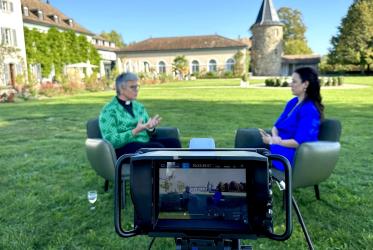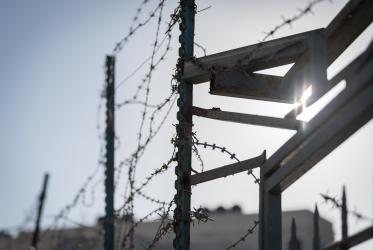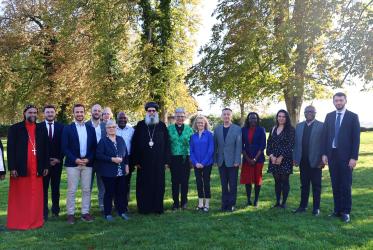Displaying 1 - 20 of 132
Voice of churches vital during UN women’s rights talks
28 March 2024
Violations of human rights escalate in Masafer Yatta, Jerusalem
30 November 2023
Violence against Palestinians is rising in the West Bank
16 November 2023
Thirty days that changed the ecumenical movement
23 October 2023



















